If you work in talent acquisition, then you’ll know that ghosting isn’t just a dating faux pas — it’s a recruiter’s worst nightmare. However, it’s not always the candidate’s fault, especially if you haven’t taken the time to build a bond through candidate relationship management.
CRM (which isn’t to be confused with customer relationship management in the marketing work) isn’t just about avoiding the dreaded “It’s not you, it’s me” email. It’s about crafting relationships that are as strong as your next hire is talented.
We’ve sourced expert insights to walk you through the top tips, most effective tools, and strategies so slick you’ll be rushing to implement them, like, yesterday. Ready to turn those maybe’s into definitely’s? Swipe right on these insights!
TL;DR — Key Takeaways
Candidate relationship management takes a strategic approach to attracting, engaging, and hiring talent. CRM applies to managing talent pools and building an appealing brand, but also applies to the hiring process, ensuring a high-quality candidate experience.
CRM improves hiring quality by targeting potential hires with the skill set you need. It also helps you build strong, long-lasting relationships with talented individuals, broadens your talent pool, and keeps candidates engaged.
CRM systems include automated messaging, smart talent identification, candidate filtering, and personalization. Data analysis also helps companies understand recruitment performance.
An essential feature of CRM systems is the ability to rate candidates based on their skill set and other assessments, allowing for a prioritized and comprehensive evaluation of each candidate’s suitability for the role.
Companies can improve candidate management by researching the talent landscape. Personalized, consistent communication and streamlined hiring processes are so important these days. It’s also important to engage failed candidates and nurture new hires.
Toggl Hire offers many vital CRM features. Engage applicants with skills tests and feedback. Automate communications to ensure consistency. Integrate assessments with CRM tools, and apply metrics to analyze and improve recruitment.

What is candidate relationship management?
Candidate relationship management (CRM) is a strategic method for overseeing the engagement with past, current, and future job candidates. At a general level, CRM helps you manage talent pools, ensuring a steady stream of qualified applicants.
Effective CRM strategies include recruitment marketing to bolster your employer brand and engage potential candidates, and strategic communications to reach out to them effectively. Personalizing content encourages candidates to stay informed about new openings.
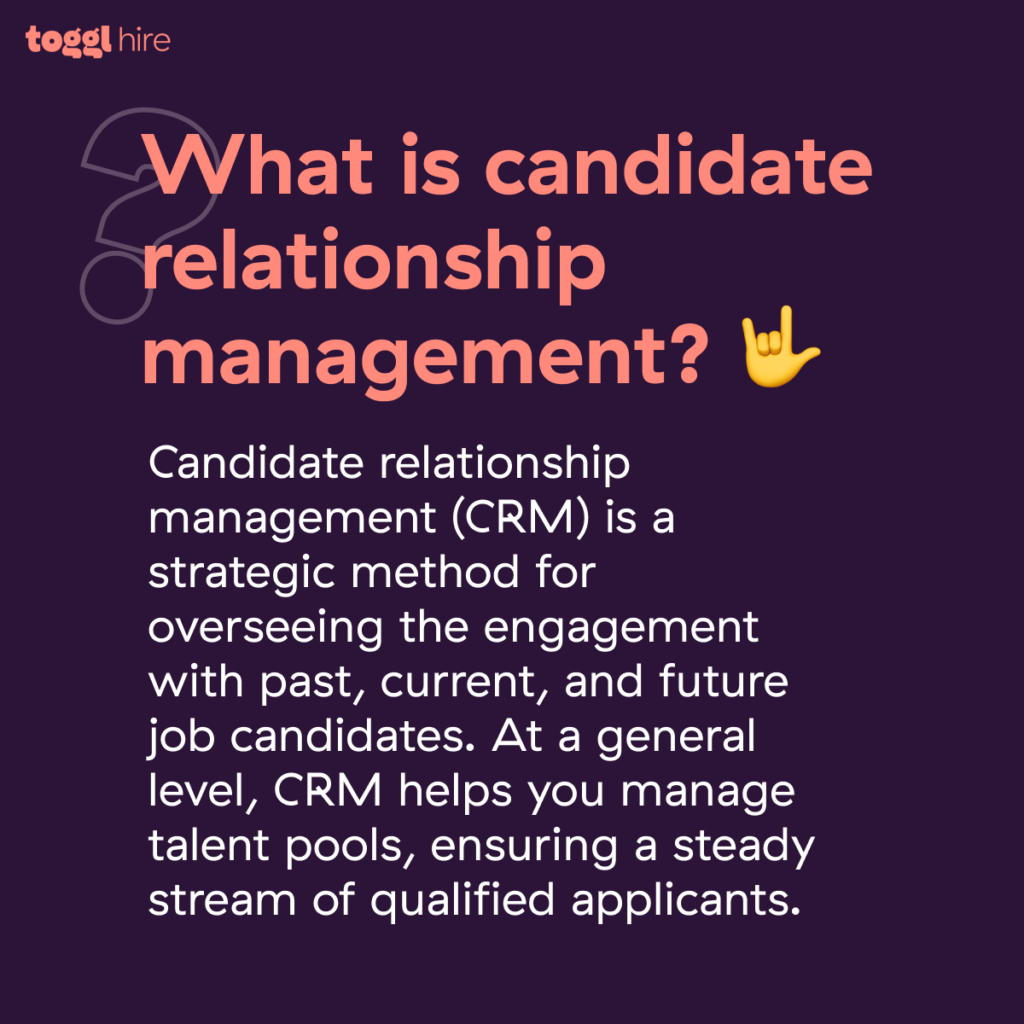
When done correctly, great candidate management enhances the hiring process, offering candidates clear communication regarding interviews, assessments, and role expectations.
Specialized CRM tools are helpful to streamline these processes (and we’ll explore a few in just a bit). Automation tools, for instance, provide consistent updates, solicit candidate feedback, and collect essential data, simplifying CRM tasks for recruiters.
Why is relationship management so important in the hiring process?
The job market’s heating up, and snagging candidates with the perfect mix of skills and spark? That’s become quite the challenge.
Candidate relationship management, in this case, isn’t about just attracting candidates but keeping the crème de la crème of talent. In a sense, it’s no longer just a piece of the recruitment puzzle — it’s the corner piece.
Companies searching for the best talent must cultivate relationships and persuade candidates to choose their workplace. Fail to charm, and watch as those top prospects waltz over to the competition. That’s something most companies these days can hardly afford.
CRM solves this business challenge in three ways.
1. Enhancing the candidate experience
CRM makes candidates more likely to accept job offers, which is an issue a lot of companies have these days due to bad experiences during the recruitment process.
Don’t think poor hiring experiences are hurting your recruiting process? Think again. 54% of candidates have walked away from a potential new job when the employer’s communication was more miss than hit.
Good CRM keeps candidates in the loop and engaged, meaning they’re usually more open to tackling in-depth assessments, giving you a clearer window into their potential. On the flip side, candidates reporting negative experiences are 185% less likely to refer contacts to your company.
2. Building a healthy talent pool
Talent pools are often treasure troves of ‘almost was’ candidates who didn’t quite fit the bill before but are primed and ready for future roles.
By maintaining great relationships with these candidates, you’re able to activate those potential hires at any time (as long as they’re still looking for a job). Tap into that talent pool to spread the word about open positions and slash your time-to-hire in half.
3. Providing a competitive advantage
CRM strategies give companies a competitive advantage in a highly demanding talent market. This is mostly due to strong employer branding, as 50% of candidates say they wouldn’t work for a company with a bad reputation, even for a pay increase.
Companies that use talent relations and CRM techniques to identify the best talent and nurture those relationships hire better workers who remain in post for longer, too. Companies with a strong employer brand experience a 43% decrease in the cost per hire, for example.
That’s a huge advantage over employers who experience high turnover and attrition rates and have to constantly look for qualified candidates every few months.
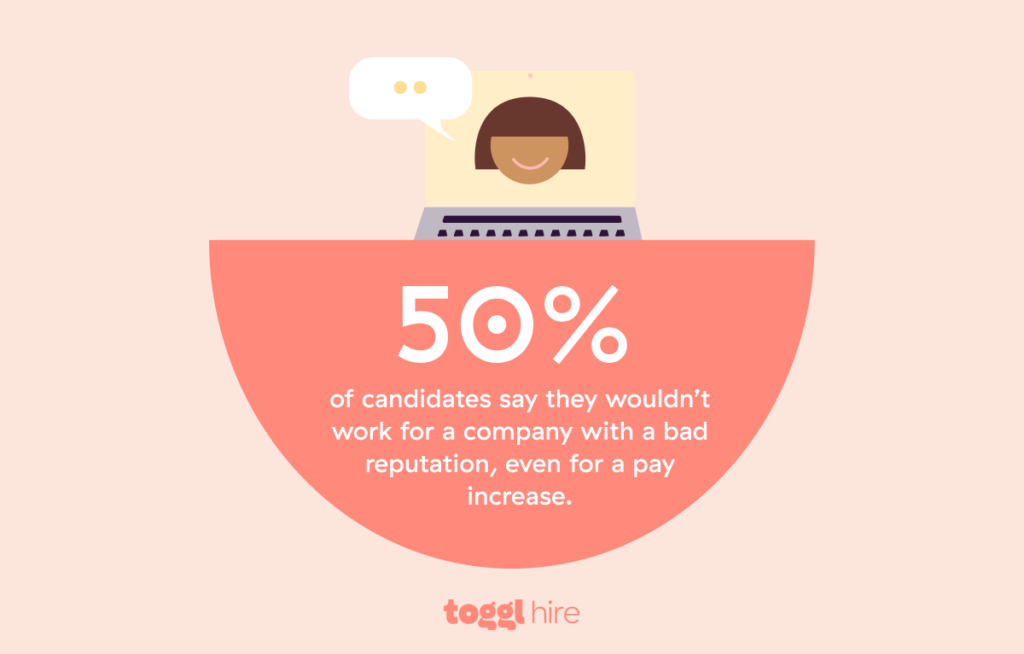
Candidate management software
Unlocking the full benefits of CRM requires the right software. The right technology enables data–driven hiring decisions, boosts candidate engagement, and cuts administrative burdens.
Relationship management software varies, just like the needs of recruiters. However, common components include:
Automation — Automated messages allow you to contact talent pool members to inform them about job openings, which boosts candidate engagement. You can also use these tools to contact applicants during hiring to ensure a uniform candidate experience.
Data visualization — Use the right CRM software to visualize your talent pool. Isolate the best places to look for talent and understand where the candidate pipeline is failing.
Filtering — CRM systems help recruiters filter talent pools by qualifications, experience, or location. Recruiters can use that information to identify relevant audiences for brand communication or highlight the right talent for job invitations.
Personalization — Most CRM software profiles candidates to help you better understand their unique backgrounds. Those systems then deliver content ideas or tasks based on data, such as job recommendations or relevant blog articles to write to attract similar talent.
Analysis — CRM technology collects data about how candidates engage with content, web assets, and application portals. Using this information, organizations can identify weaknesses like poor diversity outreach or low click–through rates.
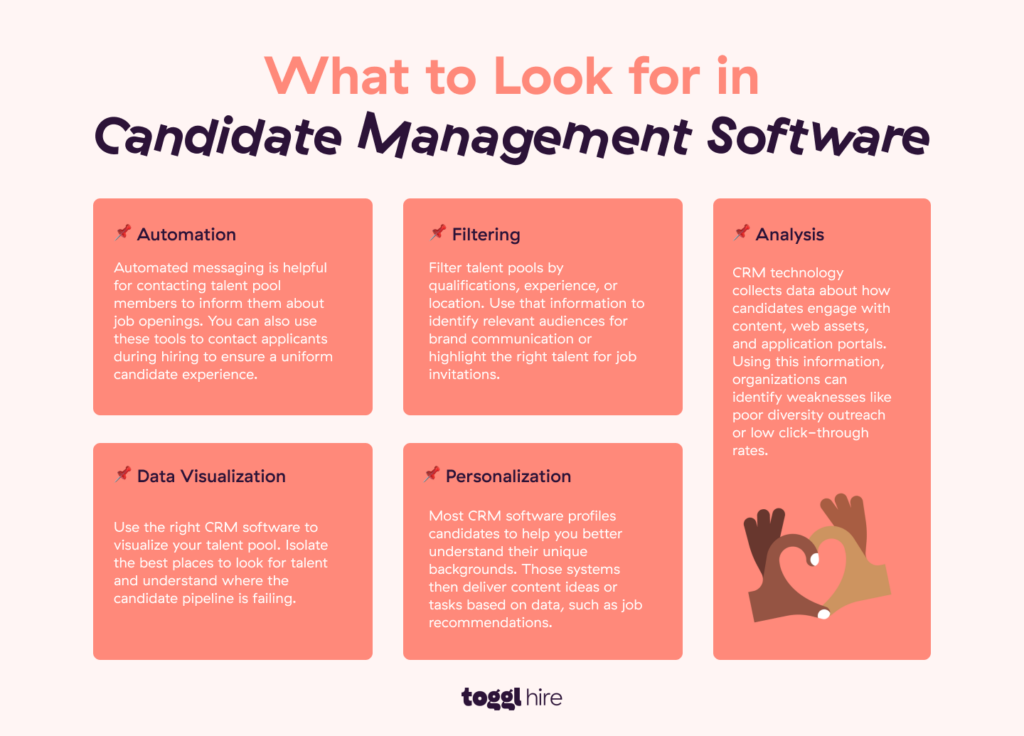
Best candidate management tools of 2024
The CRM market is highly competitive. As a result, you’ve likely noticed that you have more than a few software options to choose from and are also likely overwhelmed about where to start looking.
Our biggest tip is to choose the software that best serves your unique business needs. For example, if you need help managing a talent pool, choose a tool that makes that easier. Or, if you need help integrating candidate management with assessments and interview analysis, choose an assessment-focused software.
Consider ease of use, integration capabilities, and scalability, too. If you aren’t sure, contact the companies for a demo. Free trials also let you sample providers to find a great solution.
Toggl Hire
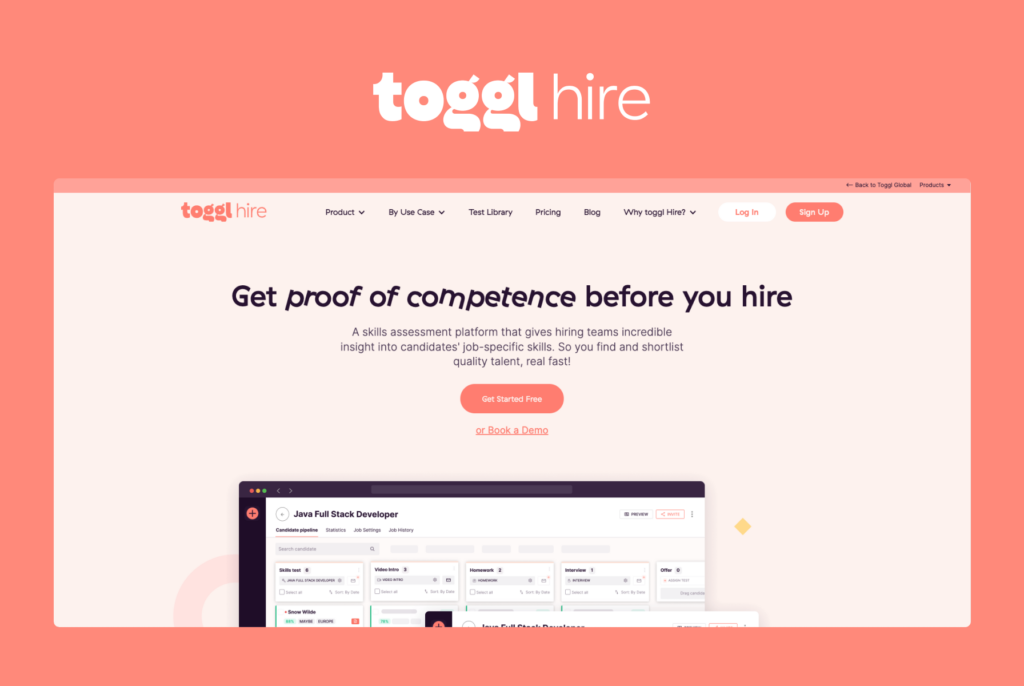
We designed Toggl Hire’s tools with ease of use and efficiency in mind. You can screen candidates and assess skills at the start of the recruitment process and then use those results to immediately filter candidates by skills. Then, easily remove unsuitable candidates and focus on top talent.
Toggl Hire also helps hiring teams retain the attention of top candidates after assessment. Automated communications streamline recruitment, providing valuable feedback for candidates without much work from recruiters. Additionally, gamified skills tests and assignments encourage participation while also reducing candidate dropouts.
While our features don’t include branding tools like a career site, they supplement CRM systems by helping you assess potentially great applicants as soon as they enter the recruitment pipeline.
Price: Our prices are transparent, and users can access a fully functional free account. Monthly rates for paid plans start at $25 on annual plans.
TalentLyft
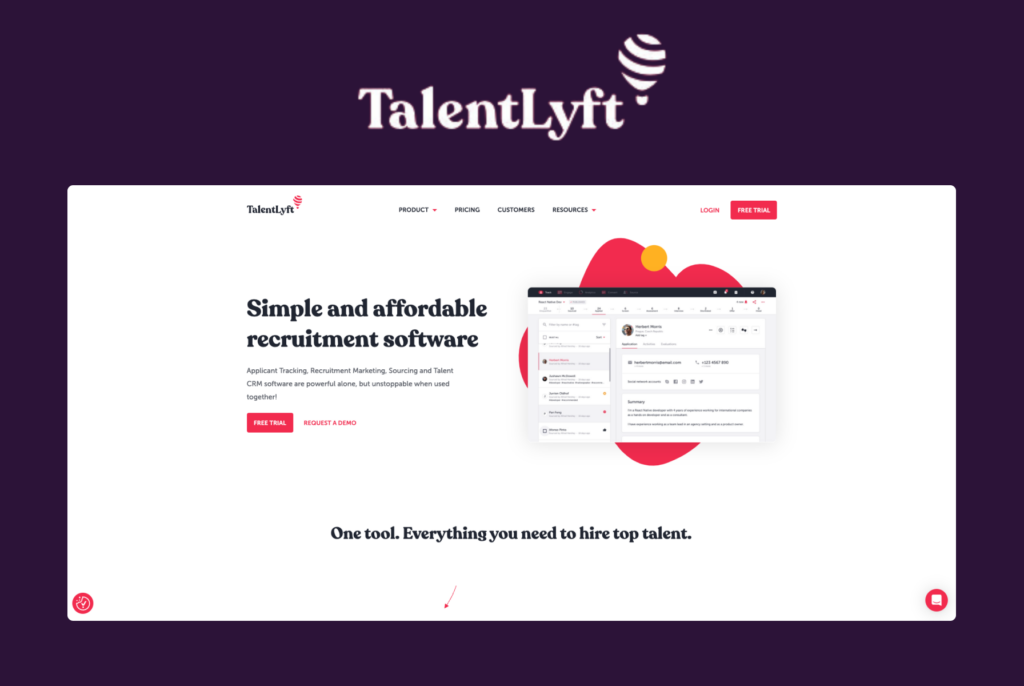
TalentLyft combines standard CRM features in a single recruiting platform, allowing users to control everything from candidate sourcing, marketing, and tracking applicants to data analytics.
What stands out about this CRM tool is that it allows you to leverage social media and niche networks like GitHub to build a robust talent network enriched by seamless employee referrals.
However, the heart of TalentLyft is its applicant tracking system, a hub where HR can collaborate on candidate evaluations, and recruiters can easily schedule interviews and follow-ups.
TalentLyft is ideal for teams interested in automating workflows. Its comprehensive features connect sourcing and applications and integrate well with talent assessment tools.
Price: Free trials are available. Starter packages cost $124 monthly, while advanced suites cost $249 per month.
Beamery
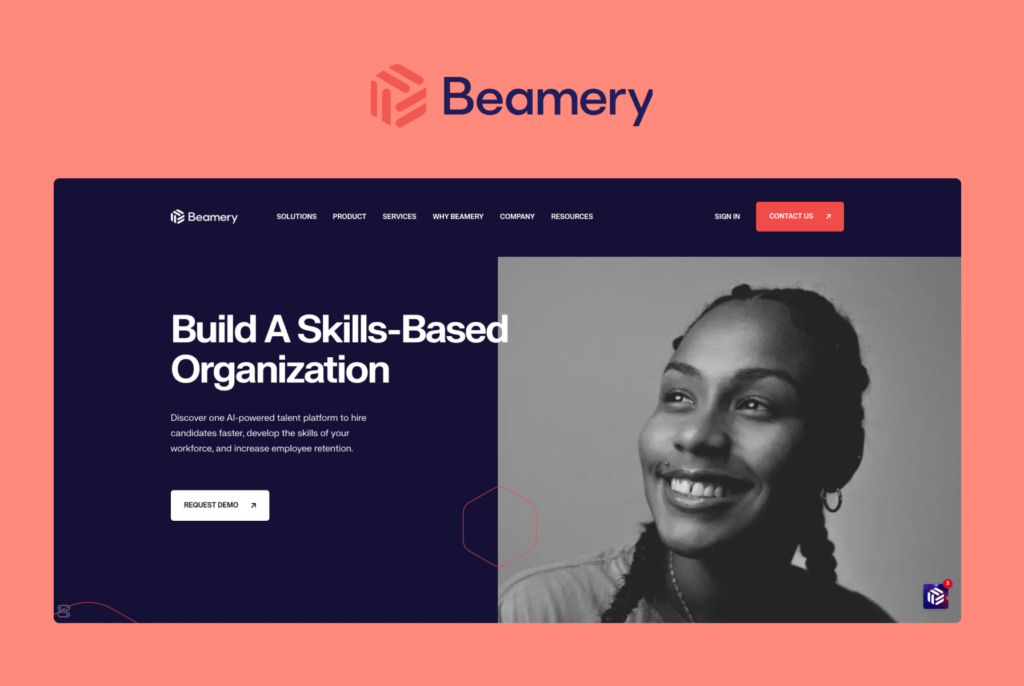
Beamery is a similarly advanced CRM. However, this software focuses mainly on managing talent pools (or “talent lifecycle management”).
Beamery is ideal for organizations with constantly changing talent pools and demanding skill requirements. On the publicity side, personalized WhatsApp or SMS messaging ensures you can reach candidates directly. AI tools analyze candidate skills and enable advice–led interactions with potential hires.
These features make reaching and activating passive candidates easier. Even better, Beamery’s communications setup feeds neatly into skills–based recruitment pipelines.
Price: Beamery offers free trials, while subscription prices depend on the project scope. Unfortunately, pricing isn’t publicly available.
Avature
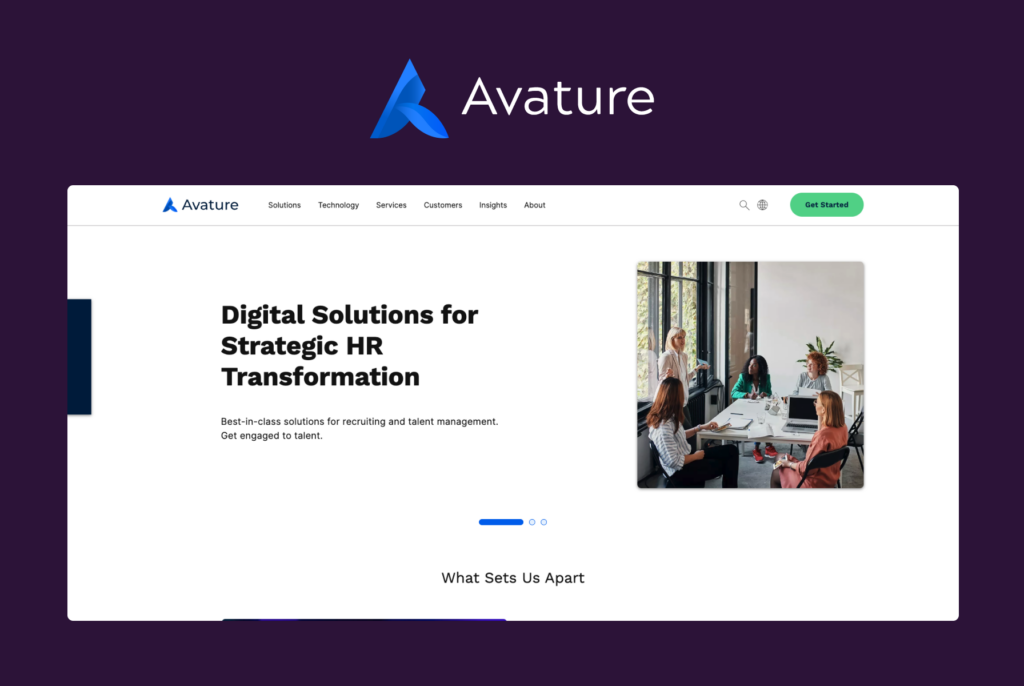
Avature’s SaaS CRM suite is all about customization. AI–powered sourcing and marketing tools help you discover and enthuse talent, while automated workflows create clear, smooth hiring pathways for candidates and make life a whole lot easier for recruiters.
What’s great about Avature is that HR teams can tailor projects for different markets. For example, companies can add referral programs and implement flexible candidate engagement strategies or even integrate their candidate management strategy with DEI goals. Talent maps and research tools also help teams develop insights about essential skills.
Avature’s REST API also integrates with ATS and candidate assessment systems, making it easier to link every stage of the recruitment process.
Price: Avature does not offer a free trial. Prices vary according to the features you need. Unfortunately, pricing isn’t publicly available.
Qualtrics
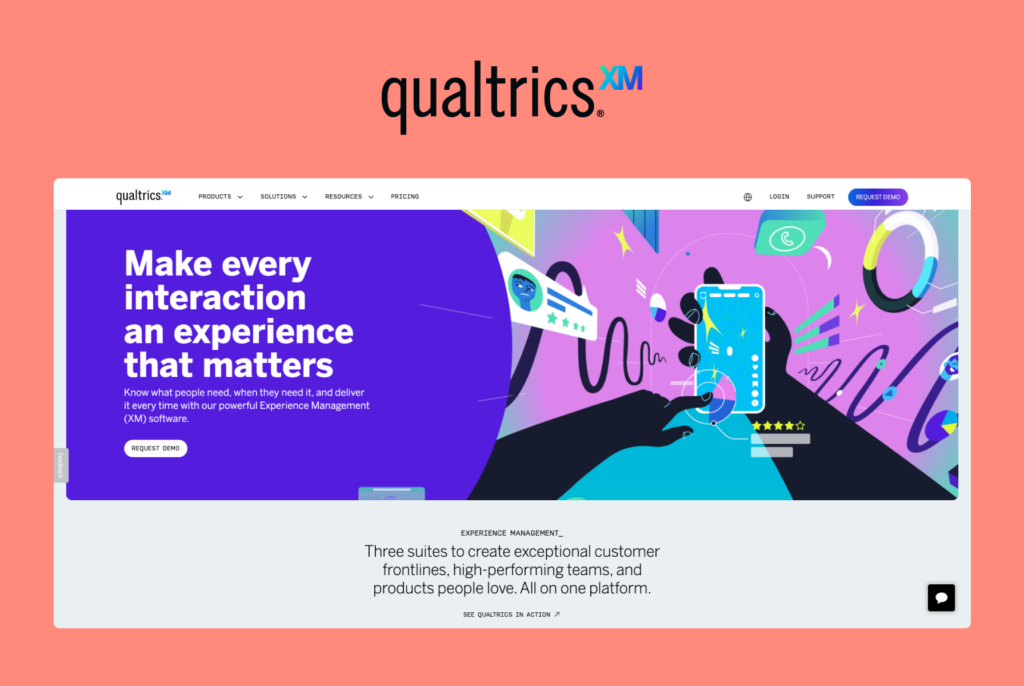
Qualtrics’ talent acquisition tools revolve around candidate experience, allowing recruiters to measure touchpoints for candidate management processes.
This includes website experience, applications, screening resumes, and interviews. Survey feedback helps you serve candidates better and cut your cost per hire.
Price: Qualtrics isn’t cheap, costing $1,500–$5,000 annually. However, you can combine basic packages with other hiring tools like Toggl Hire to keep costs low.
5–step CRM strategy and tips
Before choosing a candidate relationship management provider, audit your own CRM processes. HR managers who understand where things are going wrong can apply the right fixes to then pick the best tool or strategy for their needs.
Once you understand what’s wrong, use our top tips to help your company get back on track.
1. Discover
The best way to discover the most viable candidates? Assess the talent market! This means identifying where potential hires work or are listing their resumes.
Considering job locations is crucial, especially for roles in specific industries. For instance, a full-time position in the entertainment industry might be more attractive if located in entertainment hubs like Culver City, CA, highlighting the importance of location in attracting the right talent.
Conduct market research to discover what your ideal candidates actually want. Do they care a lot about corporate social responsibility? Do they hang out at specialist tech hubs or familiar haunts like LinkedIn?
Analyze previous recruitment processes. Past failures highlight areas of improvement, which allows you to refine your talent relations.
Current employees are a goldmine for candidate discovery. Use your best-performing staff as templates to create candidate personas to guide your CRM efforts.
Keep diversity in mind. Reach diverse communities and remove hiring bias to consider every possible source of talent.
2. Attract
After identifying promising talent, contact and direct individuals to talent management touchpoints.
Tell compelling stories about your culture and mission. When writing blogs or emails, ask yourself — does this message encourage the reader to engage? If not, take a second look.
Spread your message widely. Make good use of free social media platforms and professional networks. Use them to promote new roles and showcase your brand.
Use job ads and job descriptions to very clearly communicate role requirements. Highlight the unique attractions your company offers.
3. Engage
Engagement is more than attracting sign–ups for email lists about future jobs or your company’s culture. It involves building long-term relationships with candidates from the first point of contact.
Personalize recruiting messages using CRM tools. Content should meet individual needs. Candidates must feel valued after signing up.
Add value with helpful recruiting content. Suggest training options, highlight industry trends, or provide career advice.
Provide feedback to applicants. Update candidates about test scores and interviews. Be transparent and honest without alienating or angering potential hires.
4. Hire
Candidate management continues even after contacts apply for open positions. The selection stage of the hiring process is usually where efficient CRM kicks into gear.
Design streamlined interview processes. Strategic interviews with fewer questions are ideal to ensure you’re not wasting anybody’s time.
Use competencies to design laser–focused assessments. Test the skill set and essential qualities for each role. Use online testing to ensure a consistent experience.
Remove hiring bias. Use screening tests, diverse interview panels, and candidate scorecards for interviews.
Communicate with candidates quickly and constructively. Let applicants know where they stand. Provide valuable feedback for unsuccessful candidates.
5. Nurture
Managing candidate relationships continues post–hire and after rejections. Background communications and onboarding are vital to maintaining a thriving talent network.
Onboarding programs should convey your company’s mission. They should provide the knowledge hires need to succeed. Onboarding should feel like a natural extension of your recruitment marketing.
Stay in touch with failed candidates. Keep previous applicants in your talent pool. Inform pool members about upcoming vacancies. Log their skills, provide advice, and entice them back for future applications.
Ask applicants about their experiences. Did they enjoy the recruitment process? If not, why not? Use feedback to improve how you hire.
Celebrate candidate successes. Content should showcase successful employees and your vibrant company culture. Promote a culture of contacts on the outside who want to join.
Improve candidate management with Toggl Hire
There’s no doubt about it: nurturing relationships with potential hires improves your chances of attracting top talent. And just to reiterate how true that is, let’s recap some talent relations statistics…
58% of job seekers have turned down roles due to a poor candidate experience. Failed candidates are four times more likely to re-apply to companies providing applicant feedback.
The solution? Strategic candidate relationship management strategies that help you create a reservoir of suitable, engaged, and qualified applicants. However, we understand it’s hard to cover all those bases (and more) without the right tools.
Toggl Hire can help you achieve your CRM goals. Our easy-to–use screening tools make maintaining a healthy talent pipeline effortless. Candidates receive instant feedback about their scores, and they (and you) also benefit from blind hiring practices that avoid unconscious bias.
Create a free account today, and explore new ways to build great candidate relationships.

Elizabeth is an experienced entrepreneur and content marketer. She has nine years of experience helping grow businesses and has experienced first-hand the impact of skills-based hiring in today's global, digital world.













